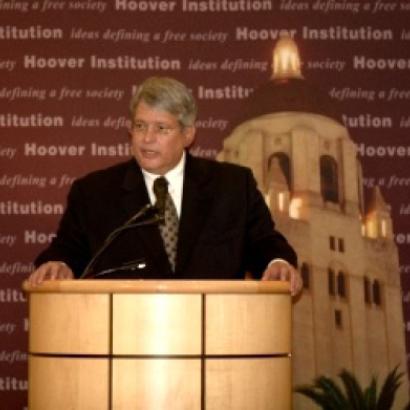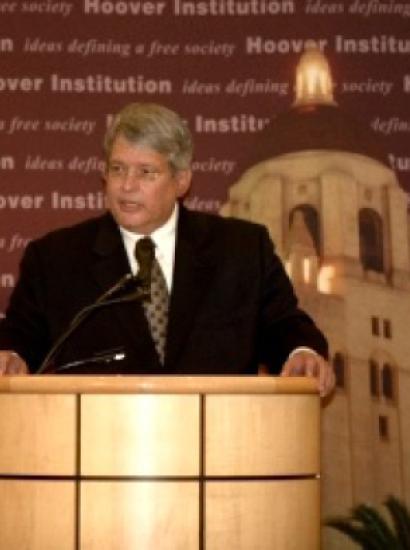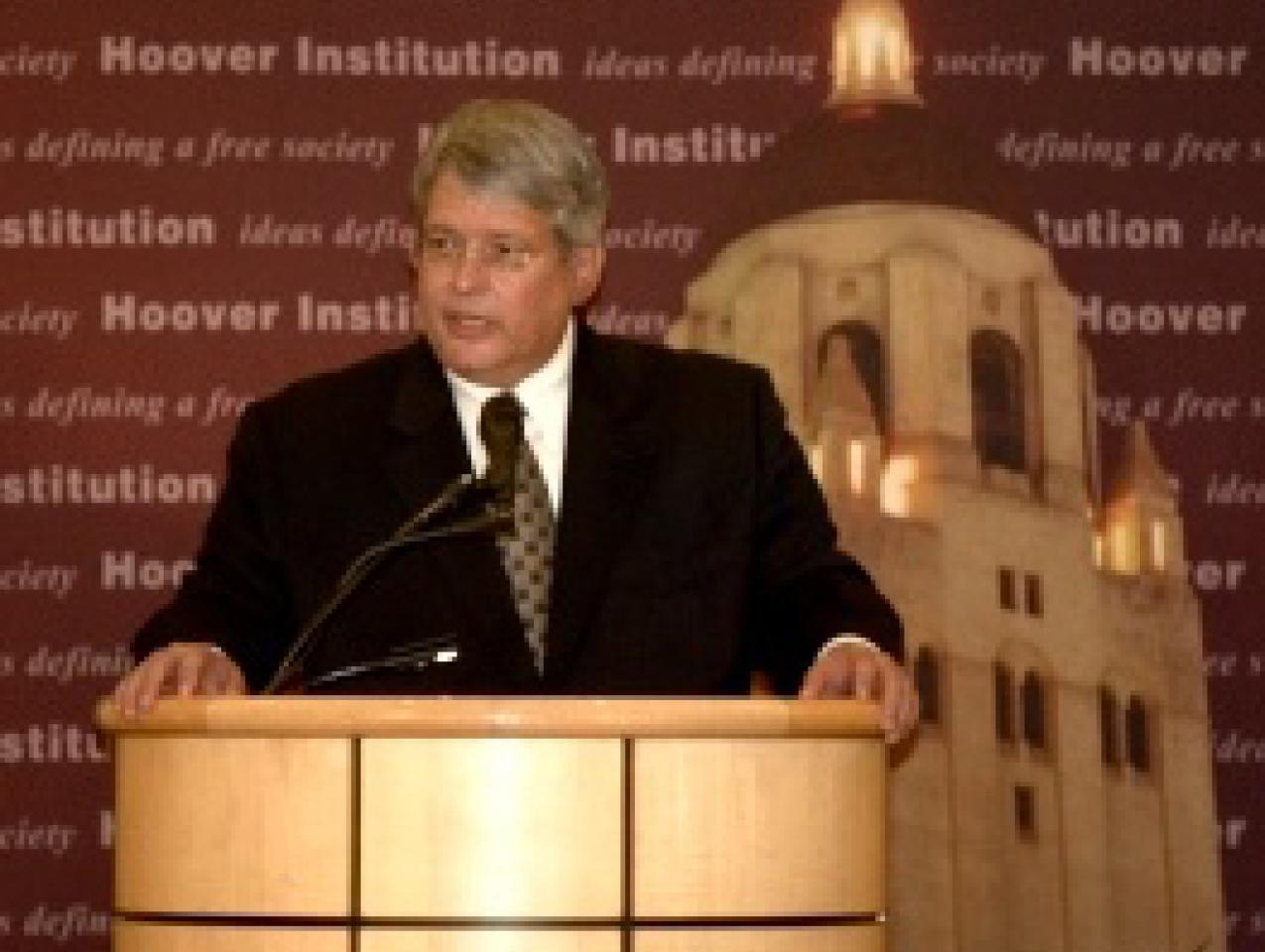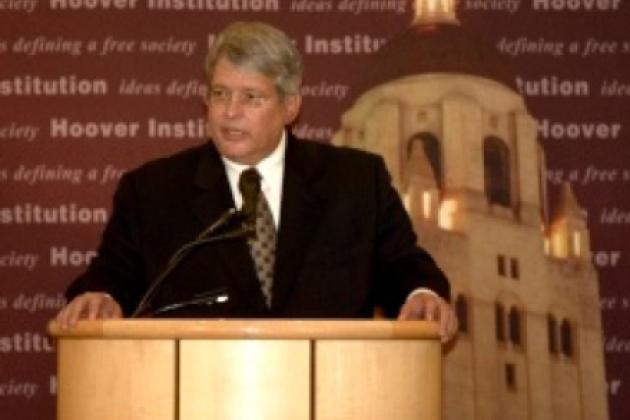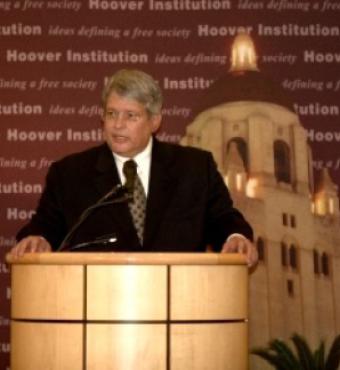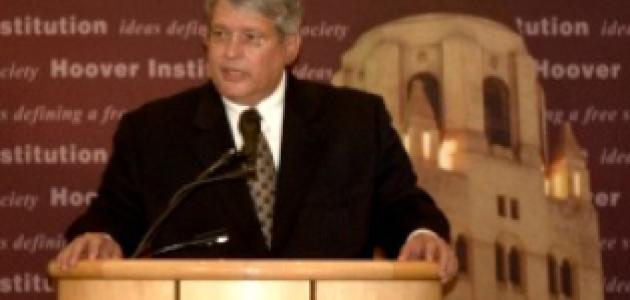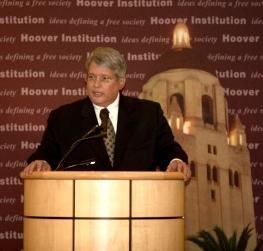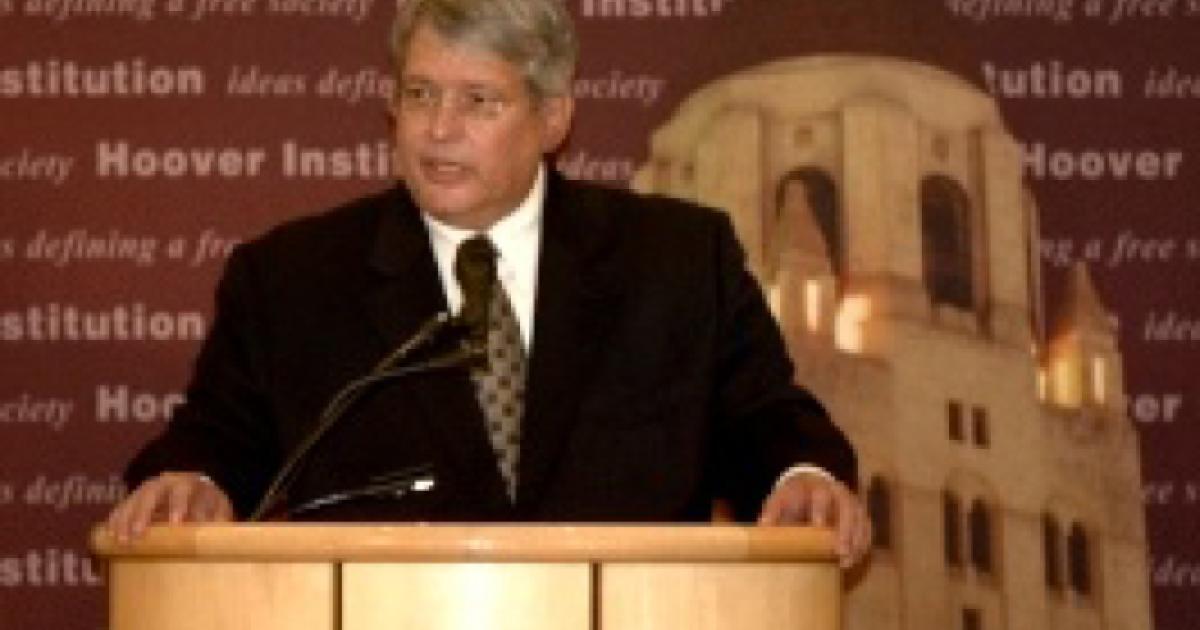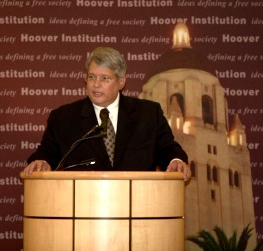
Foreign policy commentator Robert Kagan discussed international relations in before-dinner remarks on Wednesday, May 19, at the Hoover Institution’s 44th retreat. In his talk “Is Our International Order Eroding?” Kagan answered the title’s question with a resounding yes. After outlining the development of the current international order, Kagan warned that the United States, positioned as a neutral country between autocratic and liberal countries by the Obama administration, was on a downward spiral.
Unlike others who say there is nothing to be done, however, Kagan said that the United States needs to revive previous foreign policy strategy that served the country so well, citing the containment of autocratic countries as an example. Kagan is a senior associate at the Carnegie Endowment for International Peace and a Washington Post columnist. His most recent book is The Return of History and the End of Dreams (Knopf, 2008).
On Thursday, speakers offered historical perspectives and fresh insights on timely issues, such as public policy, politics, law, and economics.
Hoover fellows John Cogan and Richard Epstein analyzed entitlements and their costs to society in their presentations.
In “Lessons from the History of Entitlements,” John Cogan, the Leonard and Shirley Ely Senior Fellow at the Hoover Institution, shared what he has learned from a study he is conducting about the systematic political, economic, and social forces that affect entitlements. The first great entitlement was the Civil War pension, followed a decade later by a pension for Civil War widows, said Cogan. After these programs were in place, Cogan said, “Congress realized the electoral benefits of entitlements.” Cogan’s research documents the role economic cycles play in entitlements; although program liberalizations occur in good economic times they are maintained when the economy takes a downturn thus becoming permanent. Cogan also discussed the inability of Congress to retain budget surpluses and the pivotal role that presidents play in the formation and dissolution of entitlement programs.
“We are about to spend ourselves into bankruptcy,” said Richard Epstein, warning that, in terms of an economic crisis, the United States is five years behind Europe and ten years behind Greece. Epstein, the Peter and Kirsten Bedford Senior Fellow at the Hoover Institution, discussed transfer payments (the redistribution of income through programs such as welfare or social security) in his presentation “Barack Obama and the Rise of the Transfer Society.” Epstein, who is also the James Parker Hall Distinguished Service Professor at the University of Chicago, also noted that although the reasons for transfers are often forgotten over time, participation continues, with the result being that “everyone’s paying for more than they’re getting.”
In “Populism, Demagoguery, and Charisma” James Ceaser, professor of politics at the University of Virginia and a member of the Boyd and Jill Smith Task Force on Virtues of a Free Society at the Hoover Institution, cautioned against the dangers of creating a populist nation.
His campaign for a seat in the New York 20th congressional district was the topic of Christopher Gibson’s talk, “The 2010 Elections and the Renewal of Conservatism.” Gibson, a Hoover National Security Affairs Fellow in 2006–7, was the regimental commander of the 2nd Brigade Combat Team of the 82nd Airborne Division before his retirement in February 2010.
Counterterrorism efforts by the current and previous administrations were discussed by Benjamin Wittes, a member of the Koret-Taube Task Force on National Security Law at the Hoover Institution and a senior fellow in governance studies at the Brookings Institution. In his presentation titled “The Khalid Sheikh Mohammed Trial and the Future of the Guantanamo Detainees,” Wittes noted continuity in the approaches but pointed changes in dealing with terrorists by the current administration. Two symbolic areas of change undertaken by the Obama administration—the closing of Guantanamo and bringing terrorists to trial—are proving more difficult than expected, Wittes said.
Two former presidential economic advisers were on hand to wrap up the day’s talks with their presentation “The U.S. Economy: Where Do We Go from Here?” Edward Lazear, the Morris Arnold Cox Senior Fellow at the Hoover Institution, former chairman of the President’s Council of Economic Advisers in the Bush administration, and former director of the National Economic Council, said he believes that the United States is out of the recession and into recovery. He noted that bad policy decisions could jeopardize the recovery, although he thought voters would force their elected representatives to make the right choices.
Lazear was joined by Keith Hennessey, assistant to the president for economic policy from November 2007 to January 2009 and now a research fellow at the Hoover Institution. Hennessey discussed the federal budget and compared past, present, and future U.S. budgets. He anticipates that in the coming years spending will outpace tax increases, leading to increased deficits and a higher national debt. He also discussed fiscal policy and the Republicans’ and Democrats’ views on economic issues in the upcoming election.







